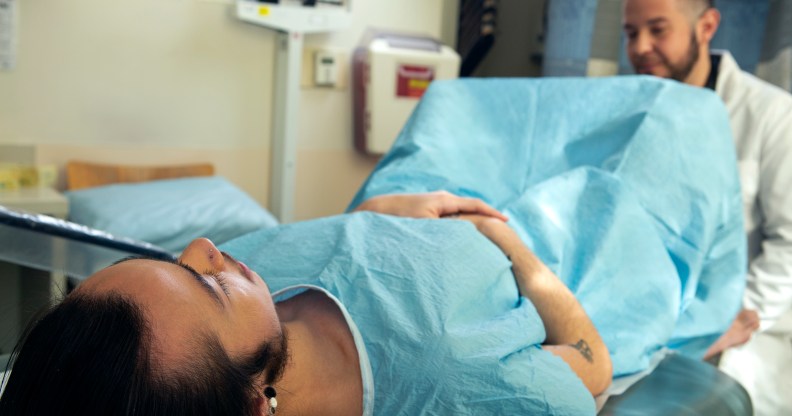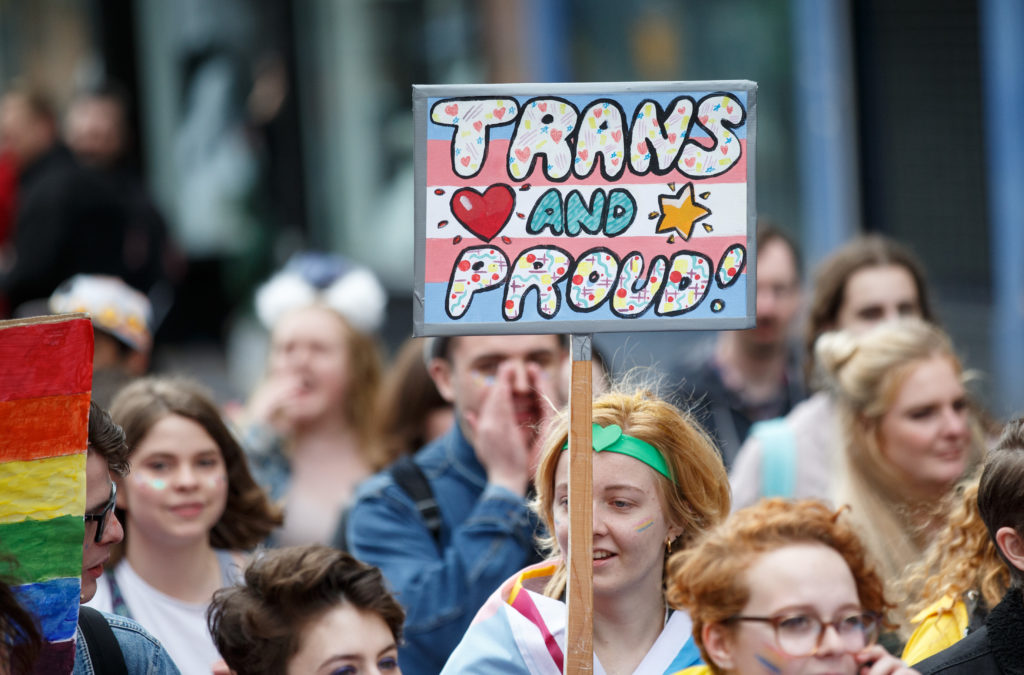Transgender healthcare in the UK must be ‘urgently addressed’, says GP body

Genderqueer person in a hospital gown receiving a pelvic exam. (Zackary Drucker/The Gender Spectrum Collection)
Long waiting times for appointments at gender identity clinics, the lack of research into healthcare options for gender dysphoria and the absence of GP training in transgender health issues must all be urgently addressed, the Royal College of General Practitioners (RCGP) has said.
In a new position statement on trans healthcare, the RCGP points out that gender identity clinics (GIC) have seen a 240 percent increase in referrals over the past five years, leading to trans people waiting an average of 18 months for a first appointment after referral to a GIC by their GP.
GP training is also woefully lacking when it comes to gender identity issues, the RCGP said, and a comprehensive national training programme for GP’s in trans healthcare is needed.
Only seven specialist gender clinics in England
Natasha Handley, policy and engagement officer at Mermaids, the charity that supports trans young people and their families, told PinkNews that Mermaids welcomes the “positive and proactive” statement from the RCGP.
“Trans children and their families are currently trying to navigate a woefully under-resourced system in the NHS so it’s good to see calls for more services and clinicians,” Handley said.
The RCGP paper highlights that, as well as there being only seven GIC’s in the whole of England, there is only one centre that provides gender identity development service to under 18’s.
The RCGP “strongly encourages” the NHS to expand gender identity services, it said. Plus, IT systems need to be updated so that trans patients can be treated in a respectful manner, for example giving patients the ability to say how they would like to be addressed in terms of name and pronouns.
This update needs to include recording a persons trans status, because of problems at the moment such as trans men who are recorded as male not receiving notifications for smear tests.
And the GP curriculum should cover gender dysphoria and broader trans health issues.

A participant holds a sign saying “Trans and Proud” during the Glasgow Pride march on August 19, 2017 in Glasgow, Scotland. (Photo by Robert Perry/Getty Images)
The RCGP says it is now developing an e-Learning module on understanding gender variance in primary care.
Handley said, “We agree wholeheartedly that there is an urgent need for more GPs who have been trained to understand transgender and gender-questioning patients.
We would call on mandatory, universal training for all GPs around gender issues and for the NHS to take the RGCP’s advice and give their services and clinicians the investment so desperately needed.”
GP’s need to ‘step up’ when it comes to trans healthcare
However, the new RCGP position was not welcomed by all.
Dr Helen Webberley, of GenderGP – an online private trans healthcare service that recently relocated to Spain after both its doctors, husband and wife team Helen and Mike Webberley, were suspended by the General Medical Council – told PinkNews that GP’s need to “step up” when it comes to trans healthcare.
“What we have is a massive cohort of patients not getting care because NHS specialised services cannot provide care,” Webberley said. “But very specialist services like GIC’s are only supposed to deal with 500 patients a year.”
“The RCGP is saying that trans care is very specialised and needs to be done by specialists,” she said.
“But some trans people have very easy needs – some just need an oestrogen patch to put on their bottom. GP’s are hiding behind this ‘we’re not specialists’ banner,” she said. “The RCGP have a responsibility to their patients. GP’s need to step up. There is plenty of research out there – they just need to read it.”
“Because otherwise, what happens to those patients who are waiting four years for specialist appointments?” Webberley said.

